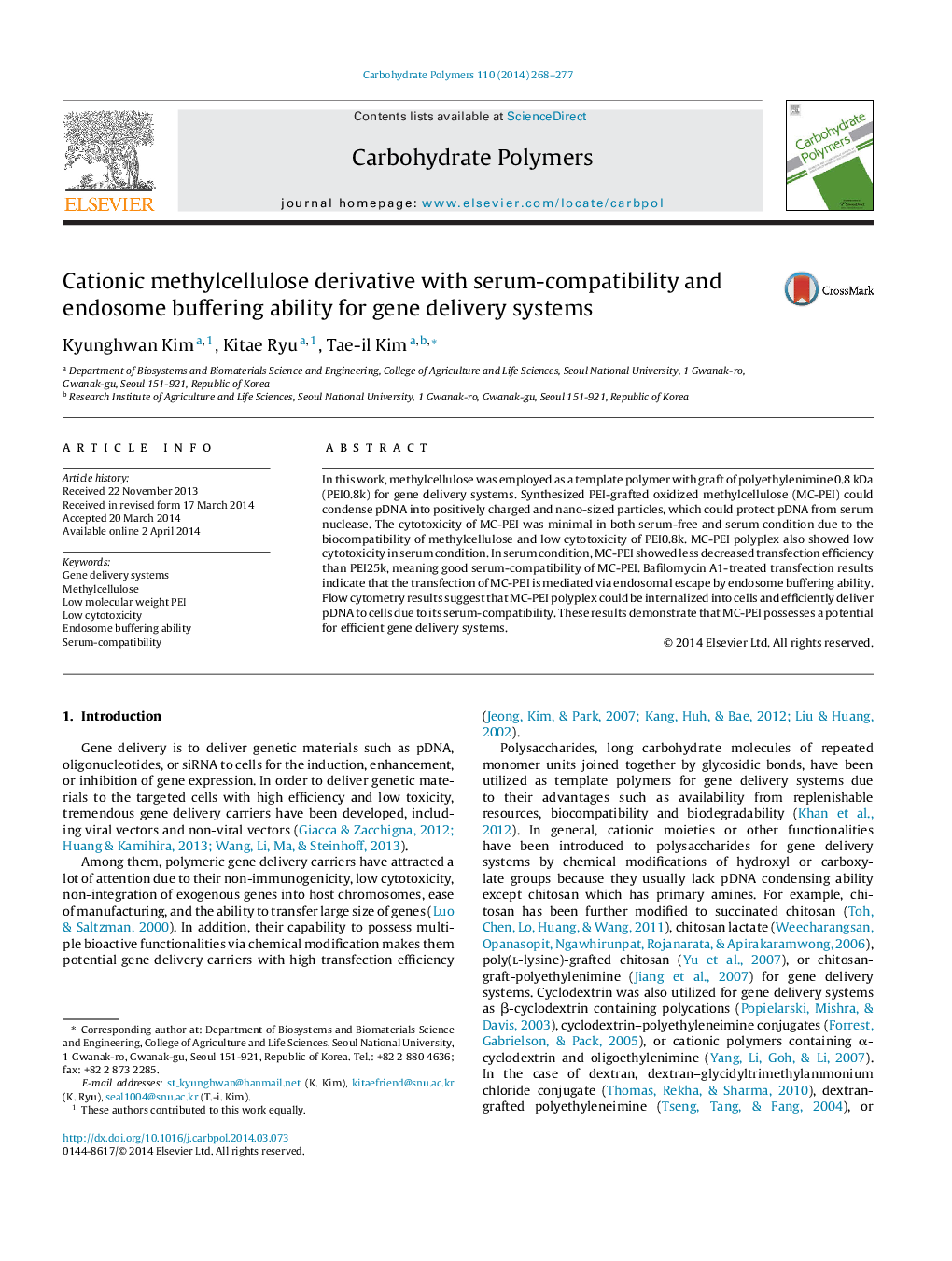| Article ID | Journal | Published Year | Pages | File Type |
|---|---|---|---|---|
| 1385832 | Carbohydrate Polymers | 2014 | 10 Pages |
•PEI0.8k-grafted oxidized methylcellulose was synthesized for gene delivery systems.•MC-PEI could condense pDNA to nano-sized and positively charged complexes.•MC-PEI could protect pDNA from serum nuclease in similar with PEI25k.•Low toxic MC-PEI showed high transfection efficiency with good serum-compatibility.•The transfection is mediated via endosomal escape by endosome buffering ability.
In this work, methylcellulose was employed as a template polymer with graft of polyethylenimine 0.8 kDa (PEI0.8k) for gene delivery systems. Synthesized PEI-grafted oxidized methylcellulose (MC-PEI) could condense pDNA into positively charged and nano-sized particles, which could protect pDNA from serum nuclease. The cytotoxicity of MC-PEI was minimal in both serum-free and serum condition due to the biocompatibility of methylcellulose and low cytotoxicity of PEI0.8k. MC-PEI polyplex also showed low cytotoxicity in serum condition. In serum condition, MC-PEI showed less decreased transfection efficiency than PEI25k, meaning good serum-compatibility of MC-PEI. Bafilomycin A1-treated transfection results indicate that the transfection of MC-PEI is mediated via endosomal escape by endosome buffering ability. Flow cytometry results suggest that MC-PEI polyplex could be internalized into cells and efficiently deliver pDNA to cells due to its serum-compatibility. These results demonstrate that MC-PEI possesses a potential for efficient gene delivery systems.
